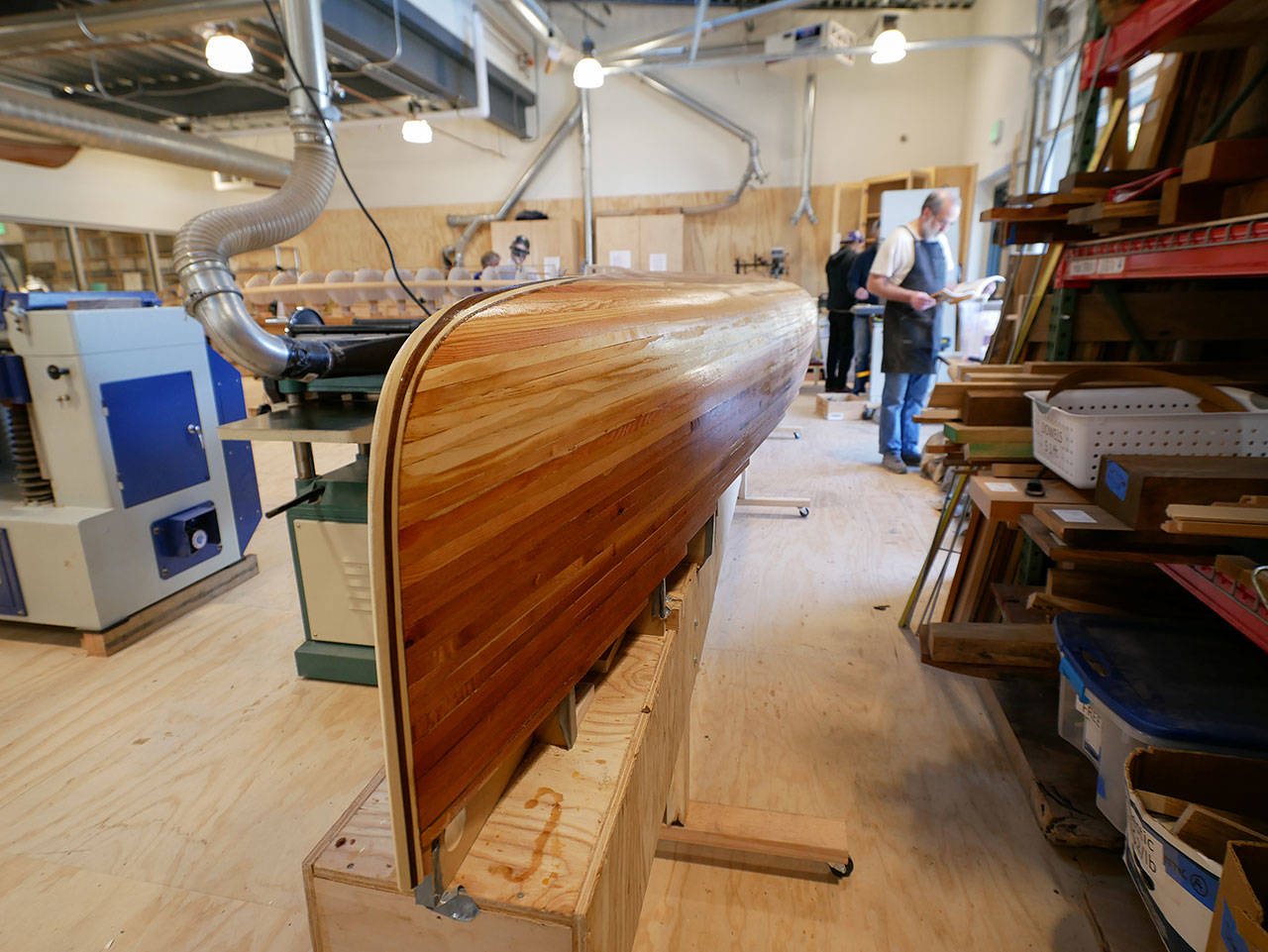A new sawmill in the midst of semi-pristine jungle might seem oddly juxtaposed with the idea of conservation. We already know how this story ends. Surely this is not a good thing, right?
Bainbridge Island’s Jim Gordon says it is — both for the land the people who live there.
Founder of the Bainbridge-based nonprofit Progress Tools, Gordon is refining an exportable canoe production method he hopes to see proliferate in rural Nicaragua, where the locals — the Rama, one of three main indigenous groups on Nicaragua’s Caribbean coast — rely on small boats as a way of life, but have long been constructing dugout canoes, which require large, heavy old-growth trees. They’re running out of those trees. Also, they harvest them with outmoded chainsaws, which necessitate the usage of much gasoline.
“It’s a very inefficient way to do it and it chews through a lot of wood,” Gordon said.
Gordon’s design, the example/prototype constructed using skills he learned in a woodworking class at Bainbridge Artisan Resource Network (BARN) last year, uses much smaller pieces of wood — Spanish Cedar, which is a lighter, faster growing tree abundant in that part of Nicaragua — milled into strips, a much easier and more sustainable process.
“It’s actually one of my first really big woodworking projects,” Gordon said. “It’s the biggest and actually the first that I did myself.”
The boat is about 20 feet long and will weigh, when completed, about 60 pounds.
“This model I chose because I have a bunch of indigenous friends down in Central America and this model would be perfect for their use,” Gordon said. “So I’m learning the skills and it’s kind of a prototype for what we want to build down there. The idea is for them to build one for themselves and sell one, then build one, sell one.
“It uses very little wood; with quarter-inch strips a little wood goes a long way.”
The project is part philanthropy, part wish fulfillment.
“It’s something I’ve dreamt of doing since I was a teenager, but never actually did until I took that intro class and built a kayak at BARN,” Gordon said. “I was in the first kayak-building class that they had. That’s where I learned to build with wood strips.”
Kayaks are actually more complex than a canoe, Gordon said, though much smaller, making them impractical for daily use by the Rama, who use the boats as their primary means of transportation and for work, hauling people and supplies, going fishing.
Gordon, who works as a software developer, first visited the region years ago, and was reportedly among the first group of foreigners to stay for more than a few days. He then started Progress Tools to provide assistance to the community and, in 2015, donated an entire Hudson Company sawmill, given at cost, to the Rama. It’s been used to make boards for houses, doors, boats and many pieces of furniture, too.
“They provided the labor and we just provided some of the know-how and got an actual mill operation going,” Gordon said. “Now they’re able to mill wood from their own land for their own houses.”
The locals have already been making simple boats from planks of wood, but Gordon said he’d like to see the lighter, wood strip method used as soon as possible in the remote region.
“It’s like an Indian reservation, where I go,” Gordon said. “It’s about the size of the entire Puget Sound, but there’s like 4,000 people there; it’s very sparsely populated. And the shoreline looks probably like it did when [Christopher] Columbus came. It’s very wild and remote, very few people go there.”
The ultimate goal, he explained, is to improve their quality of life and help the Rama embrace modernity while still maintaining as much of the own cultural identity as possible.
“They’re loving it,” he said. “We turned [the mill] over to them, we gave them the receipt. They have complete ownership of the whole project and the machine and we just ship some bearings down once in a while, or some extra saw blades.”
The machinery — both human and actual — is now in place, and Gordon has dreams of hosting boat-building workshops in Nicaragua sooner rather than later.
“They love boats; it’s the only way to get around down there,” he said. “You ask them if there are roads and they say, ‘Yeah there’s roads.’ Well OK, it’s a muddy trail through the woods.
“These people are smart; they’re strong, they’re energetic — all they need is a few tools and a little bit of know-how and they can do what they need to do for themselves.”



